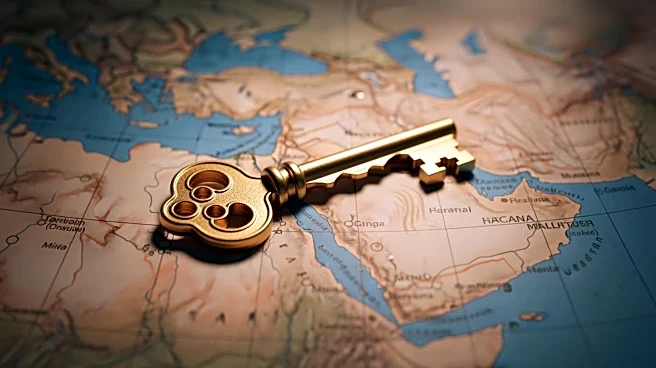What's Happening?
The Jewish Community Relations Council of New York is advocating for the return of 16 hostages whose remains are still held in Gaza. These individuals, referred to as 'fallen hostages,' have not been returned
to their families for burial, a situation that has persisted despite agreements for their release. Leah Goldin, whose son Hadar has been held since 2014, is a prominent voice in this effort, emphasizing the importance of 'chesed shel emet,' a Jewish tradition of ensuring proper burial for the deceased. The situation highlights the ongoing struggle of families who are unable to fulfill this sacred obligation due to the political and military complexities in the region.
Why It's Important?
The inability to recover and bury the remains of the hostages has significant emotional and cultural implications for the affected families and the broader Jewish community. It underscores the challenges faced in conflict zones where humanitarian agreements are not fully honored. The situation also reflects on the broader geopolitical tensions in the region, where humanitarian issues are often entangled with political negotiations. The advocacy by the Jewish Community Relations Council and individuals like Leah Goldin brings attention to the need for international support and intervention to resolve these humanitarian issues, emphasizing the importance of cultural and religious practices in the healing process for grieving families.
What's Next?
The Jewish Community Relations Council and other advocates are likely to continue their efforts to pressure international bodies and governments to prioritize the return of the hostages' remains. This may involve diplomatic engagements and public awareness campaigns to keep the issue in the spotlight. The families of the hostages, along with their supporters, are expected to persist in their advocacy, seeking to ensure that agreements for the return of the remains are fulfilled. The situation may also prompt discussions on how to better enforce humanitarian agreements in conflict zones.
Beyond the Headlines
The ongoing struggle to recover the remains of the hostages highlights the ethical and cultural dimensions of conflict resolution. It raises questions about the responsibilities of governments and international organizations in ensuring that humanitarian agreements are respected. The situation also reflects the enduring impact of conflict on families and communities, emphasizing the need for comprehensive approaches that address both political and humanitarian concerns.









